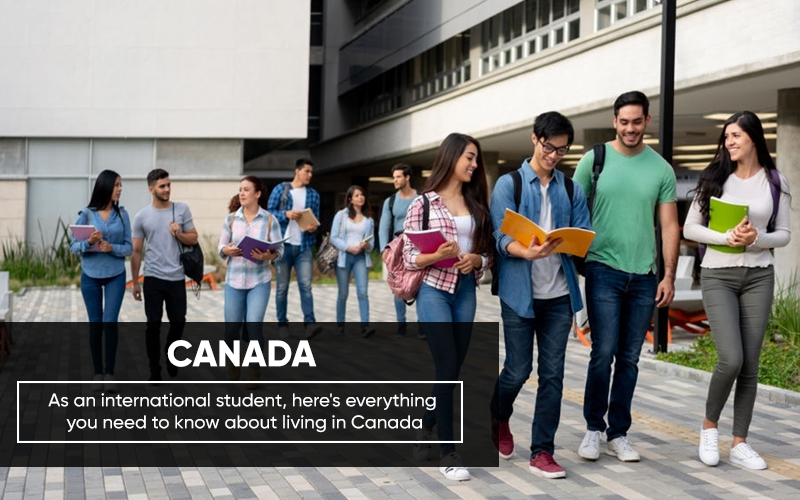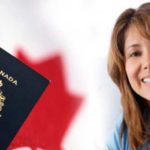The quality of education, the cost of education, housing, city and social life, culture and languages spoken, and food are all important factors for international students in Canada. This blog serves as a complete resource for learning all there is to know about student life in Canada.
Indian students find life in Canada to be particularly fulfilling since Indians have a spiritual bond with Canadians. You will undoubtedly appreciate Canadian culture. Cities in Canada are lively locations with progressive mindsets, making them ideal for student living.
When it comes to leisure activities, Canada is the place to be. Bicycling, curling, reading, horseback riding, bowling, golfing, walking, skating, hiking, cooking, skiing, and swimming are just a few of the activities that Canadians enjoy. The foreign student's life in Canada becomes a joyous adventure filled with numerous leisure activities.
Here are the answers to the most frequently asked questions regarding studying in Canada by overseas students.
Whether you’re considering study in Canada as an international student or preparing to relocate after acceptance, you’re probably curious about student life in Canada.
We've got you covered on everything from how to secure a study visa to how to make friends after you've arrived. Here are the answers to the most frequently asked questions regarding studying in Canada by overseas students.
What is the procedure for obtaining a study permit?
To apply for a study visa, you need a letter of acceptance from an approved learning institution. You might need to attend an interview with a consular officer in your home country, undergo a medical examination, and obtain a police certificate.
In order to be granted a study visa in Canada, you must demonstrate that you have the finances to sustain yourself while in the nation. On top of your tuition, you'll need at least $10,000 (plus more if you're bringing dependents and/or studying in Quebec). A Canadian bank account in your name, a guaranteed investment certificate (GIC), proof of a student loan, bank statements, a letter from a person providing you money, or proof of financing via a scholarship are all acceptable forms of proof of finances.
Many students purchase a GIC in order to speed up the study permit application procedure. The Scotiabank Student GIC allows you to invest anywhere between $10,000 and $50,000 and receive your money in monthly instalments over the course of a year.
Is there any COVID-related travel restrictions?
In general, students moving to Canada must have a valid study permit (or a letter of introduction demonstrating study permit approval) and enroll in a certified learning institution with an approved COVID-19 preparedness plan. Even if you've had all of your vaccinations, you might need to quarantine for 14 days upon arrival.
Because COVID travel restrictions are continually changing, it's advisable to consult the Canadian government's COVID travel website for students and international employees before leaving your home country.
Are you qualified for financial assistance or scholarships?
The good news is that you will be eligible for scholarships and financial assistance in Canada even if you are an international student. Keep in mind that financing isn't always guaranteed, and you may need to do some research to figure out what you're eligible for and how to apply.
Many graduate programmes will provide a financial package that includes scholarships and bursaries if you are a graduate student at a Canadian university. You should also check with your school's financial assistance office to determine whether any overseas students are eligible for any scholarships or bursaries.
Additional information may be found online; EduCanada is a wonderful place to start.
Where do you look for a place to stay?
While many colleges offer residences for overseas students, if your school does not offer accommodation or if you do not receive a residence space, you will need to find a place to stay on your own. Inquire at your school's international student office about where to find flats or rooms to rent in the city you'll be moving to.
Read the CMHC's renter's handbook for information on the rental process in Canada and what to look for in a lease agreement before signing one.
In Canada, how does banking work?
Though banking in Canada differs from banking in your own country, you can get started quite easily. Banks such as Scotiabank provide accounts specifically created for international students, as well as helpful branch employees who may assist you in setting up your account. To establish an account, you'll need your study permit or temporary visa, a government-issued picture ID, and evidence of school enrolment.
The Scotiabank StartRight® programme 1 includes no monthly account fees2 on a qualifying chequing account, unlimited no-fee international money transfers3, an unsecured credit card with a $5,0004 credit limit to help you develop credit, and secure online and mobile banking 24 hours a day, 7 days a week.
How do you get healthcare in Canada?
Some provinces in Canada pay international student medical expenditures as part of their provincial health insurance policies. While others require students to acquire private health insurance. Many colleges require overseas students to get their own private health insurance. If you have documentation of additional private health care, you may be eligible to opt out.
Your school can assist you with this procedure. But if you're wondering about whether jurisdictions support foreign students under provincial health insurance. This Canadian government website can lead you to the province's website.
Is it possible for you to work?
You're probably wondering what the restrictions are for overseas students. Who want to work to help pay for school or gain relevant work experience. The answer is that you can work, but only in certain places and for a certain amount of time.
International students can work on campus if their study permit allows it. But they can only do so when their programme begins, not before or after they finish. Your employment might be your school, a student group, or a private company that offers services on campus. You may also manage your own business if it is physically located on campus and you are able to perform several jobs.
You can work as many hours as you like on campus as an international student. But you'll need to apply for a Social Insurance Number. You may also be able to work off campus for up to 20 hours per week and in a co-op employment. But only if your degree needs a co-op placement in order to graduate. During designated breaks, such as the summer, the winter vacations, or reading week. You are also able to work full-time off campus. You can work overtime or two part-time jobs that sum up to more than an average work week during those times. But you must be a full-time student before and after the break to be eligible for full-time employment.
What are some of the best ways to get active in student life and make friends?
While knowing how to handle life as a Canadian student is vital. The people you meet will most likely influence how much you enjoy your stay in the country.
Participate in student clubs, study groups, intramural events, and activities organised by your dorm residence. Your school's international student office frequently holds social events for foreign students. Where you can meet others who have also relocated to Canada to study and are seeking friends.
How do you achieve academic success?
International students may find it more difficult to succeed. As students since the language, educational system, and expectations may differ from those in their own country. Most institutions, on the other hand, provide support services such as tutors, professors, and teaching assistants. Who are available during office hours to assist students.
You could also wish to form a study group with your classmates so that you can assist one another.
What strategies do you use to deal with culture shock?
There is always a learning curve when moving to a new nation. You'll likely come across many cultural and social customs that are very different from what you're used to. And you might miss your friends and family. Allow yourself plenty of time to acclimate and establish friends with other international students in your situation.
After studying in Canada, what are your residence options?
Are you interested in working in Canada when you graduate? Graduates of select approved educational institutions are eligible to apply for a Post-Graduate Work Permit (PGWP). Your programme must be longer than eight months to be eligible. If your programme is more than eight months but less than two years. You may be eligible for a work visa for the same amount of time. If your programme lasts more than two years, you'll be eligible for a three-year work permit.
You can apply for permanent residency and citizenship once you acquire a job and start working in Canada.
It's not as difficult as it appears. To pursue your study abroad goal in Canada, all you need to do is pass. The relevant examinations and receive your visa in order to travel to this incredible country.
At Immigration Experts, we guide your clients with the best possibilities of moving to Canada immigration point system with regards to their professional background.
To Stay Updated on Canada Immigration News, Subscribe to Immigration Experts
Fill up our Free Evaluation Form and take the initial step towards your Visa and Immigration Process. We are available for ONLINE CONSULTATION!
Contact Immigration Experts for FREE Points-Based Assessment of your profile: Drop us an email at: info@immigrationxperts.com
Give us a call at: +91-9999467686, 0120-6618011, 0120-6618123
Book your appointment with our experienced immigration counselors and solve all your immigration-related queries at the comfort of your home.
Achieve your Immigration dreams with Immigration Experts






